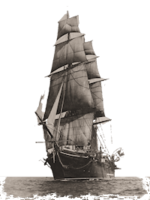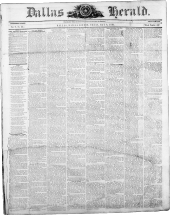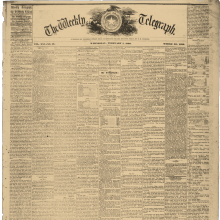May 13, 1863, The Charleston Mercury
FUNERAL OF GENERAL JACKSON.
RICHMOND, May 12. The funeral procession of General JACKSON today was a grand pageant. The streets along which it passed were thronged with ladies and gentlemen. The procession left the Governor’s mansion at 10 1/2 o’clock this morning, and marched in column, with bands of music, down Government street to Main street, up Main street to Second street, thence through Grace street to the Capitol, where the body was placed in the Hall of Congress. The President, the Cabinet, the Governor and other dignitaries, with the civil and military, were in the procession. The military escort consisted of infantry, cavalry and artillery. The body will be removed tomorrow to Lexington County, Va.
FROM THE WEST.
VICKSBURG, May 11. A coal barge ran past our batteries last night. The enemy’s fleet above is anchoring.
JACKSON, May 12. One thousand of GRANT’S cavalry entered and burned Crystal Springs, on the New Orleans Railroad, at noon yesterday. OSTERHAUS is reported to be at Cayuga, with one hundred and fifty cavalry and six or seven regiments of infantry. The enemy is reinforcing Willow Springs and Rocky Springs from the river. GRANT will probably advance eastward and not direct to Vicksburg.
We have reports from the river that General PRICE met and chastised the Yankees at St. Francis’ River. It was reported in Memphis that the Confederates had occupied Pittsburg, Pa. A despatch, dated Cincinnati, May 8, says that affairs at Dayton have been comparatively quiet. After 10 o’clock yesterday the troops from Cincinnati and Columbus began pouring in. Thirty of the ringleaders had been arrested, and every precaution had been taken to prevent a renewal of the riot.
A St. Louis despatch of May 5 says that the most prominent of the secessionists had [continue reading…]












